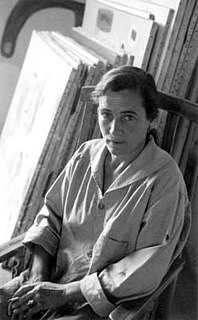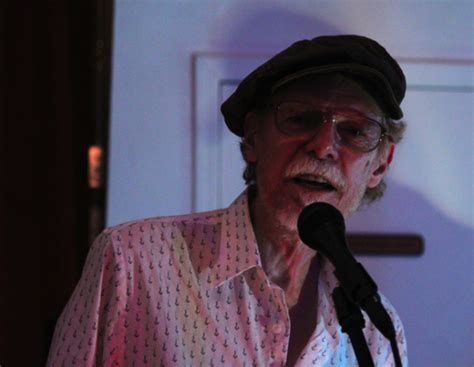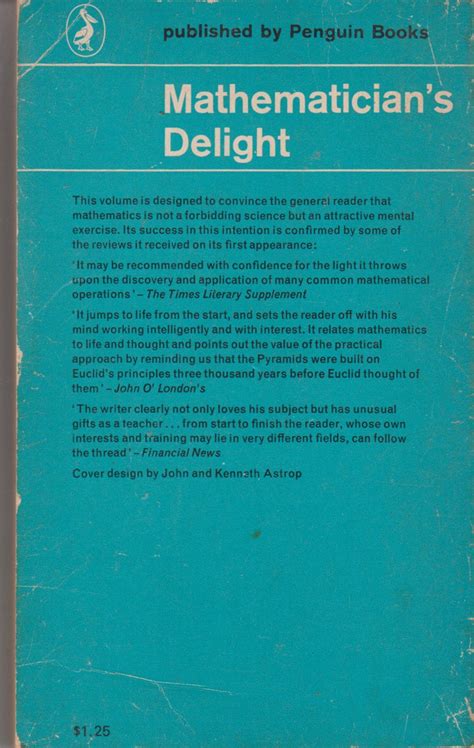A Quote by Stephen Nachmanovitch
In the art of teaching, we recognize that ideas and insights need to cook over a period of time.
Sometimes the student who is least articulate about expressing the ideas is in fact the one who is absorbing
and processing them most deeply. This applies as well to our own private learning of our art form; the
areas in which we feel most stuck and most incompetent may be our richest gold mine of developing
material. The use of silence in teaching then becomes very powerful.
Quote Topics
About
Absorbing
Areas
Art
Art Form
Articulate
Becomes
Cook
Deeply
Developing
Expressing
Fact
Feel
Form
Gold
Ideas
In Fact
Incompetent
Insights
Learning
Least
Material
May
Mine
Most
Need
Our
Over
Own
Period
Powerful
Private
Processing
Recognize
Richest
Silence
Sometimes
Stuck
Student
Teaching
Them
Then
Time
Use
Very
Very Powerful
Well
Which
Related Quotes
As a teacher and parent, I've had a very personal interest in seeking new ways of teaching. Like most other teachers and parents, I've been well aware painfully so, at times that the whole teaching/learning process is extraordinarily imprecise, most of the time a hit-and-miss operation. Students may not learn what we think we are teaching them and what they learn may not be what we intended to teach them at all.
Our ideas about love and attractiveness are so primal, our need for belonging so intense, that most of us are loath to abandon our favorite beliefs on these issues. If you've ever let yourself feel lovable and lovely, only to be deeply hurt, you may see accepting your own body as a setup for severe emotional wounding.
Whatever they are, can Comics be "Art"? Of course they can. The "Art" in a piece is something independent of genre, form, or material. My feeling is that most paintings, most films, most music, most literature and, indeed, most comics fail as "Art." A masterpiece in any genre, form or material is equally "good." It's ridiculous to impose a hierarchy of value on art. The division between high and low art is one that cannot be defended because it has no correlation to aesthetic response.
For what is important when we give children a theorem to use is not that they should memorize it. What matters most is that by growing up with a few very powerful theorems one comes to appreciate how certain ideas can be used as tools to think with over a lifetime. One learns to enjoy and to respect the power of powerful ideas. One learns that the most powerful idea of all is the idea of powerful ideas.
People forget that art is not just a piece of entertainment. It is the place where we collectively declare our values and then act on them. That's one of the most powerful things we have as a community: our culture and our art. And it's the intersection between life and how people deal with life. It's the most important thing we do.
The suppression of uncomfortable ideas may be common in religion or in politics, but it is not the path to knowledge, and there's no place for it in the endeavor of science. We do not know beforehand where fundamental insights will arise from about our mysterious and lovely solar system. The history of our study of our solar system shows us clearly that accepted and conventional ideas are often wrong, and that fundamental insights can arise from the most unexpected sources.
I feel that for years of teaching in the country and reading criticism in books, I feel like the things most needed in our culture are the understanding of the meanings of our music. We haven't done that good of job teaching our kids what our music means or how we developed our taste in music that reminds us and teaches us who we are.
Sometimes the most powerful way to teach our children to understand a doctrine is to teach in the context of what they are experiencing right at that moment. These moments are spontaneous and unplanned and happen in the normal flow of family life. They come and go quickly, so we need to be alert and recognize a teaching moment when our children come to us with a question or a worry.
If we are in Christ the whole basis of our goings is God, not conceptions of God, not ideas of God, but God Himself. We do not need any more ideas about God, the world is full of ideas about God, they are all worthless, because the ideas of God in anyone’s head are of no more use than our own ideas. What we need is a real God, not more ideas about Him.
I have enjoyed teaching most of the times that I have done it. I also like being by myself and making things and performing, so much that if I hadn't needed an income I probably wouldn't have done much teaching. Having said that, I think working with others, having to come up with art projects, and learning how to present your ideas in a clear way, to adults and/or kids is always interesting and rewarding.
Most remarks made by children consist of correct ideas very badly expressed. A good teacher will be very wary of saying 'No, that's wrong.' Rather, he will try to discover the correct idea behind the inadequate expression. This is one of the most important principles in the whole of the art of teaching.
Our prayer must not be self-centered. It must arise not only because we feel our own need as a burden we must lay upon God, but also because we are so bound up in love for our fellow men that we feel their need as acutely as our own. To make intercession for men is the most powerful and practical way in which we can express our love for them.
In undeveloped social groups, we find very little formal teaching and training. Savage groups mainly rely for instilling needed dispositions into the young upon the same sort of association which keeps adults loyal to their group. They have no special devices, material, or institutions for teaching save in connection with initiation ceremonies by which the youth are inducted into full social membership. For the most part, they depend upon children learning the customs of the adults, acquiring their emotional set and stock of ideas, by sharing in what the elders are doing.



































